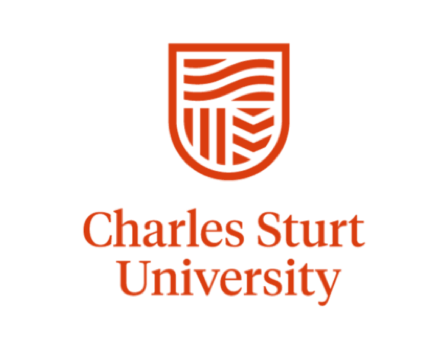The future is digital and Charles Sturt University is the perfect place to prepare for it. Ayub Alam Khan from Pakistan is a prime example. While his bachelor’s degree in telecommunications engineering took him to various industries across Karachi and Dubai, he realised that an advanced qualification would help him break into the tech sector.
Khan knew what he needed and was keen on experiencing a new culture in the process, so he headed to Australia — hoping to follow the journeys of several friends already studying in Sydney and Melbourne. However, the big-city hustle and bustle — which he was very familiar with — made him conclude that to grow, he needed to step out of his comfort zone.
After an extensive phone call with Charles Sturt University’s course director Dr. Sabih Rehman, Khan was convinced of what he needed to do next.
Not only was the growing coastal hub of Port Macquarie the perfect place for him to broaden his horizons, but Charles Sturt University (CRICOS 00005F) — one of the leading providers of IT education in Australia — was the perfect institution to advance his IT career.
With a Master of Information Technology (CRICOS 081461M), Khan would advance his expertise by leaps and bounds. After all, it is a course delivered by highly qualified experts who work closely with global industry and academic leaders to keep their modules relevant. Furthermore, this programme was widely recognised for integrating practical industry perspectives with emerging tools and technologies.

As a student, Ayub Alam Khan participated in a hackathon that helped local businesses solve problems through technological innovation. Source: Charles Sturt University
Plus, by picking Charles Sturt University — Australia’s number 1 university for graduate employment — Khan would be job-ready when he graduated. In fact, the Master of Information Technology is versatile enough to cater to the aims of any IT aspirant.
Alongside the four core subjects and four elective subjects, every student can choose up to two specialisations. The lineup comprises cyber security, data science, business analysis, software design and development, cloud computing, computer networking, IT management, network security, and systems analysis. These are also the booming fields that Master of Information Technology graduates will be ready to work in after graduating.
Khan opted to specialise in network security and computer networking, both of which he briefly explored as an undergraduate. He knew that by mastering these topics at a postgraduate level, he would be able to step away from his desk and work directly in the field. Even before graduating into the workforce, that’s exactly what he did, building his CV along the way.
Upon graduation, Khan was ready to get started in the workforce. Today, he is a network and systems engineer at TECHGIES — a start-up based in Port Macquarie to uplift local businesses. It is a task Khan knows well. As a student at Charles Sturt University, one of his favourite memories includes participating in a hackathon that helped local businesses solve problems through technological innovation.
His teammate and a recent graduate, Akansha Verma from India, benefited from this experience as well. “A project like this goes hand in hand with the theory we have been learning to give us more hands-on experience,” she says. “We also built local connections, which helped us when we finished our master’s degrees.”

Alongside four core subjects and four elective subjects, every Master of Information Technology student can choose up to two specialisations. Source: Charles Sturt University
Today, Verma is a Service Desk Consultant at Computer Systems Australia in Newcastle. She credits her success to her mentors. “Dr. Rehman was incredibly helpful throughout the course,” she enthuses. “Simon Houston and Dr. Anwaar Ul-Haq were also ever willing to help, not only with course-related problems but by sharing their practical experience in the IT industry and how students can find work.”
Anwesh Budhathoki, an international student from Nepal, is excited to follow in the footsteps of both Khan and Verma. The field he’s about to enter is experiencing rapid growth and the skills he’s learning will stay in demand for decades to come. Budhathoki’s brother graduated from the same course last year and is now working as a software developer for a leading Australian bank.
“I am confident with the competency my degree will bring,” he says. “I also know that it will make me a more competitive candidate after I graduate.”
Budhathoki is developing his knowledge around the areas of database systems, cyber security, software design and development, and more in various ways — one of which is through online learning. When he isn’t thriving on-campus, he attends classes, accesses course materials, submits exams, reviews results, and interacts with his peers virtually.
The qualification can also be completed entirely online, without ever having to step foot in a classroom. Flexible study enables IT enthusiasts to work towards their degree anytime, from anywhere, at any pace.
That’s a valuable option to have, but who wouldn’t want to live, learn and explore the beautiful coastal town of Port Macquarie? Here, golden beaches, a lush hinterland, koala hospitals, river cruises, and postcard-like views abound.
Khan, who’s successfully built a life in the town, never wants to leave. He encourages anyone looking for a scenic escape — filled with IT career opportunities — to pack a suitcase and experience the wonders that surround Charles Sturt University for themselves. Everyone he’s invited for a visit has added Charles Sturt University to their bucket list. Chances are, you would too.
Follow Charles Sturt University on Facebook, Instagram, Twitter, and YouTube













